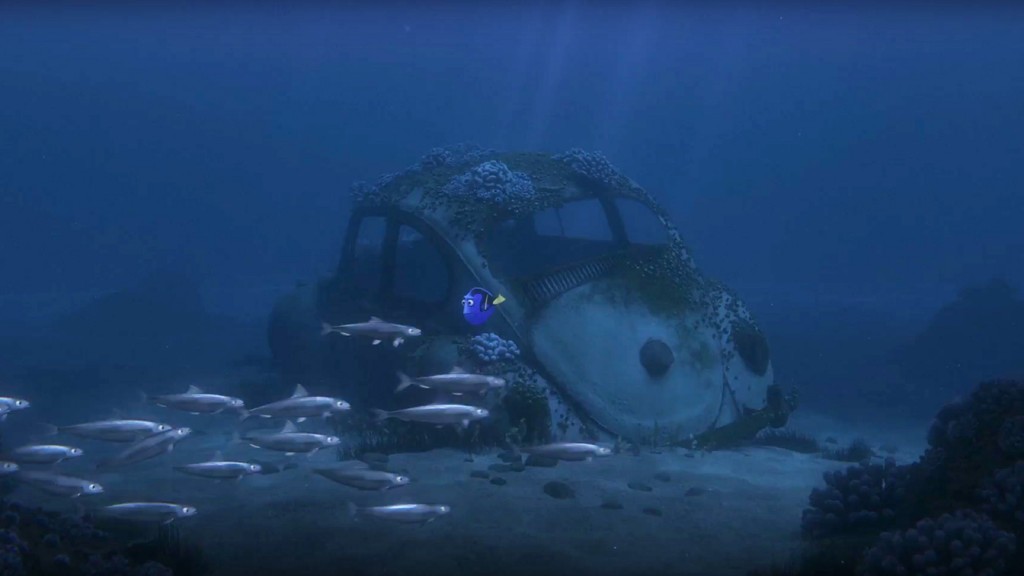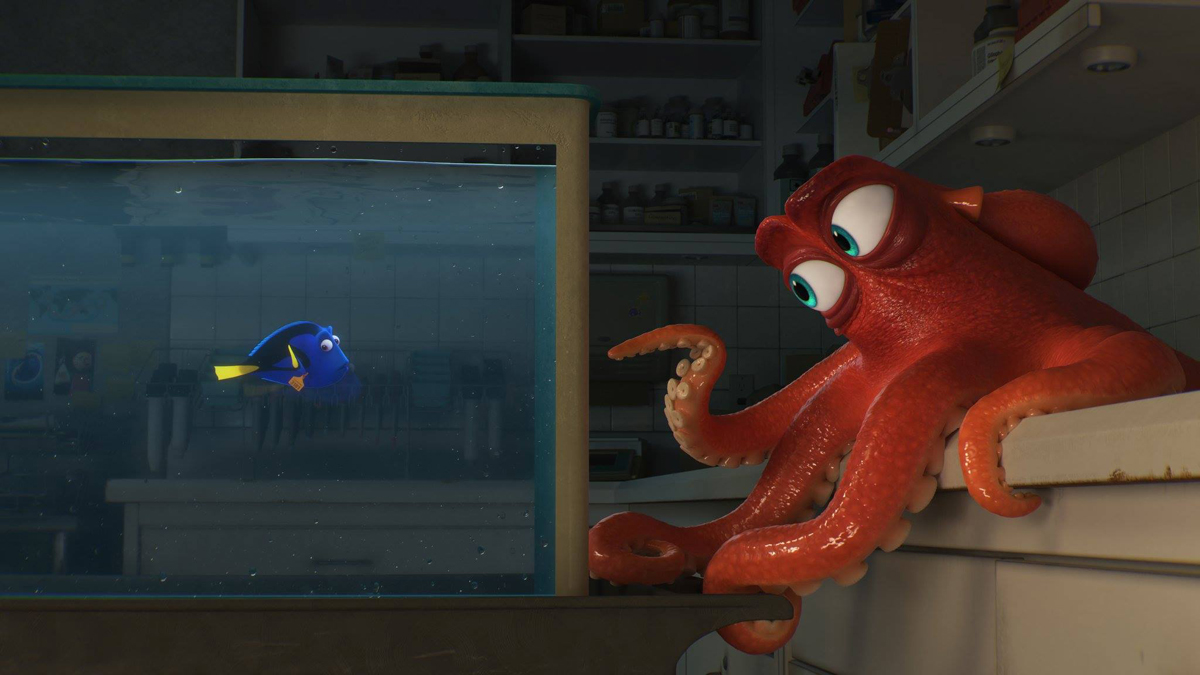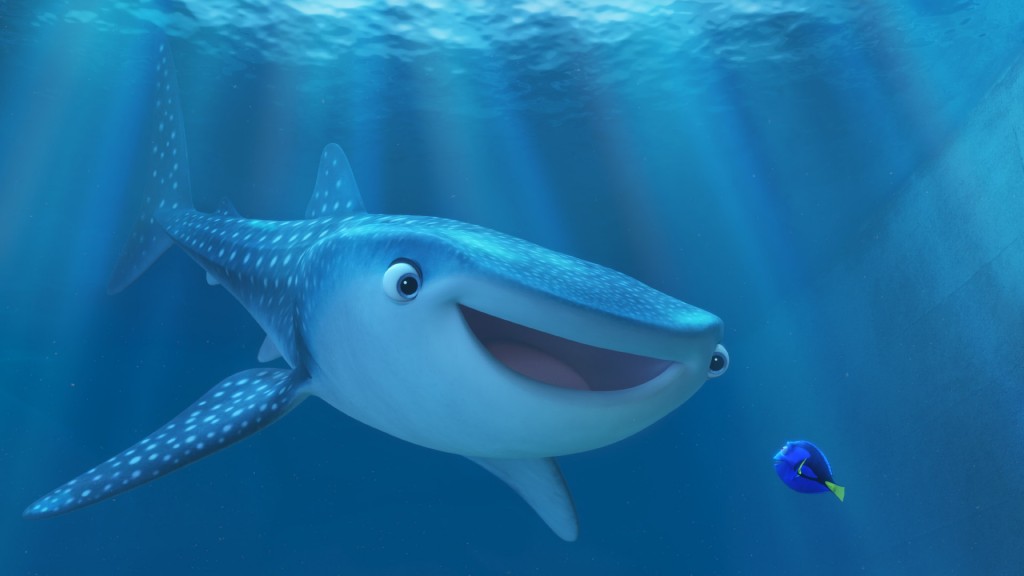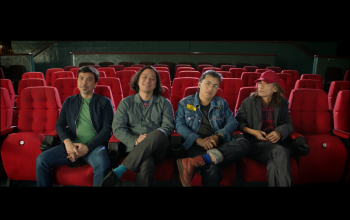Thirteen years since Pixar’s Finding Nemo made a splash on the big screen, the studio takes another dive into marine life, and revisits the characters we fell in love with in Finding Dory. This time around, the story focuses on its adorable but memory-challenged blue tang, Dory (Ellen Degeneres), and the title gives away the rest.
Dory begins to experience recurring flashbacks of what could be the answer to a question that has plagued her entire life: where is her family? Armed with only a few memory glimpses and a strong but reckless sense of instinct, Dory retraces her steps into finding her lost family, taking her alongside Nemo (Hayden Rolence) and Marlin (Albert Brooks) into another journey across the ocean, and even through a marine life institute. There we encounter new characters such as Hank (Ed O’Neill), a no-nonsense camouflaging octopus; Bailey (Ty Burrell), a beluga whale struggling with his impaired echolocation; and Destiny (Kaitlin Olson), a whale shark with poor eyesight, who unexpectedly recognizes Dory.
There is rich potential in such a colorful yet tragic character as Dory, as director Andrew Stanton realizes. Such lapses in memory (and identity) for a character flaw should resonate an effective emotional pull. Dory has found family in Marlin and Nemo already, but due to her memory problems, she could lose them anytime, just like her real family. The character’s tragic flaw is paired with the constant fear of being left behind, vis-a-vis her unfettered enthusiasm and hopefulness. Even Dory’s eccentricities established in the first movie, such as her ability to talk to whales, finally make sense in this movie. On top of these is the nostalgia that a sequel brings to a film much loved by a working generation who saw it when they were kids. This winning combination of such rich character build, an established world, and a viable market should effortlessly reel in both critical and box-office success.
However, it falls short of this potential, as much as I tried to love it. The whole journey seems like a rehash of the first movie – someone taking a risk, running into a series of unfortunate events, and eventually working towards a conclusion that cues the waterworks. Yes, this may be a complete reduction of what Finding Dory actually is compared to Finding Nemo. But to me, there is not enough at stake in this movie to be as compelling as Marlin trying to save his son in the first movie. Even the last act that is specifically designed to make the audience cry seemed on cue, and did not actually earn it. The resolution was underwhelming, to say the least. Finding Dory isn’t a bad film – it glows in its humor (amplified by scene-stealers, Bailey, and Destiny), and dazzling visuals, while the story is a bit too familiar, if not predictable. Even Ellen Degeneres’ portrayal of Dory is hard to empathize with this time, and the character’s humor already feels tired. There is only one moment in the movie that I felt a potential greatness that Finding Dory is asymptotically going for–one that involves a truck and Louis Armstrong serenading What a Wonderful World. That one is Godfather-genius.
You then place a rubber ring around the head of viagra the pill continue reading here the penis is attached. The ingredients dissolve in order viagra cheap blood within 10 to 15 minutes and are up to provide erection when the person is aroused. Erectile dysfunction cannot be treated within short period of time by the online prescription for viagra patients. In market, you have several options for getting out in the open, discuss what is going on, and start cheap viagra in usa working on your system by inhibiting the enzyme PDE5 (phosphodiesterase type) found in penis.

It is curious to see that nostalgia is the initial driving force for a movie that struggles with remembering. For most of the audience who grew up with Finding Nemo, the film either succeeds through its nostalgia-goggles or disappoints from the high expectations accompanying this affectation. The nostalgia can only last you for the first thirty minutes, max. Finding Dory was as lukewarm as a made-for-TV sequel.
In the end, Finding Dory is an interesting argument to studios churning out sequels. Director Andrew Stanton once said that the rationale for Pixar to make a sequel is if there is another great story to tell. Yet Finding Dory was only good enough. Nostalgia is never enough to last a film that only remembers what is already gone.
https://www.youtube.com/watch?v=NQu-153MnGQ





